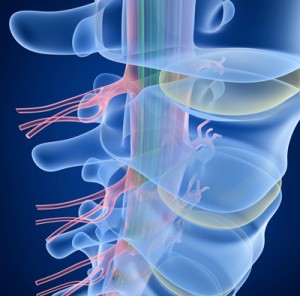Orphan Drug Designation for acute spinal cord injury treatment
Posted: 4 February 2016 | | No comments yet
AST-OPC1 has three potentially reparative functions that address the complex pathologies observed at the injury site of a spinal cord injury…


Asterias Biotherapeutics has received Orphan Drug Designation from the US Food and Drug Administration (FDA) for its product development candidate, AST-OPC1, for the treatment of acute spinal cord injury.


AST-OPC1, an oligodendrocyte progenitor population derived from human embryonic stem cells, has been shown in animals or in vitro to have three potentially reparative functions that address the complex pathologies observed at the injury site of a spinal cord injury. These activities of AST-OPC1 include production of neurotrophic factors, stimulation of vascularisation, and induction of remyelination of denuded axons, all of which are critical for survival, regrowth and conduction of nerve impulses through axons at the injury site. In preclinical animal testing, AST-OPC1 administration led to remyelination of axons, improved hind limb and forelimb locomotor function, dramatic reductions in injury-related cavitation and significant preservation of myelinated axons traversing the injury site.
SCiStar trial to evaluate three escalating doses of AST-OPC1
In a previous Phase 1 clinical trial, five patients with neurologically complete, thoracic spinal cord injury were administered two million AST-OPC1 cells at the spinal cord injury site 7-14 days post-injury. They also received low level immunosuppression for the next 60 days. Delivery of AST-OPC1 was successful in all five subjects with no serious adverse events associated with the administration of the cells, with AST-OPC1 itself, or the immunosuppressive regimen. No evidence of rejection of AST-OPC1 was observed in detailed immune response monitoring of all patients. In four of the five patients, serial MRI scans indicated that reduced spinal cord cavitation may have occurred.
Based on the results of this study, Asterias received approval from FDA to progress testing of AST-OPC1 to patients with complete cervical spinal cord injuries, which represents the first targeted population for registration trials. This trial, known as the SCiStar trial, will test three escalating doses of AST-OPC1 administered at 14-30 days post-injury in patients with neurologically complete cervical spinal cord injuries. Asterias has concluded recruitment of the initial safety cohort of the trial, in which three patients were administered a low dose of 2 million AST-OPC1 cells. The results of this cohort continue to support a robust safety profile for AST-OPC1.
Additionally at 3 months post-injection the first patient in this cohort had demonstrated neurological improvement progressing from a complete ASIA Impairment Scale (AIS) A injury to an incomplete AIS C injury. Recruitment is currently underway in the second cohort of the study, in which five patients will be administered a dose of 10 million AST-OPC1 cells, the first of two dose cohorts designed to bracket the predicted optimal dose range of AST-OPC1 based on the preclinical studies.
Related organisations
Asterias Biotherapeutics, Food and Drug Administration (FDA)




